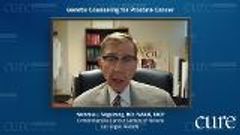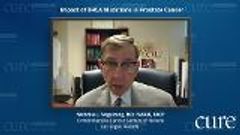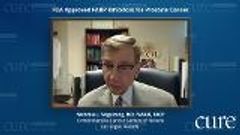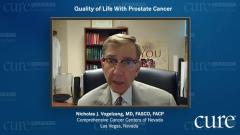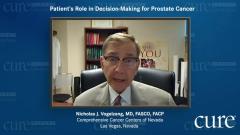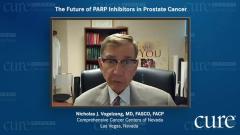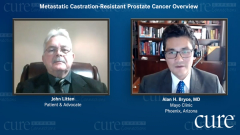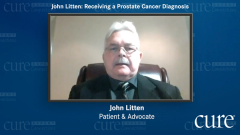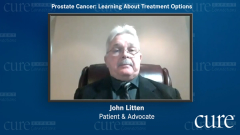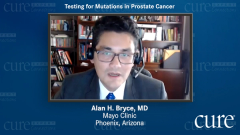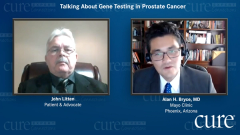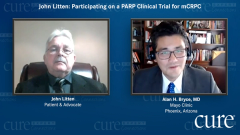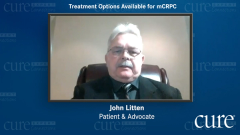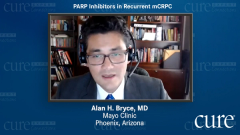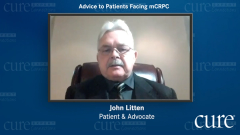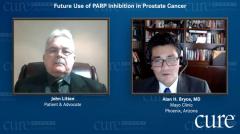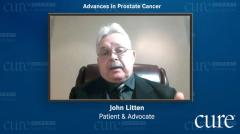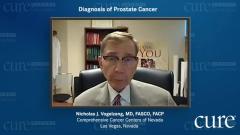
Prostate Cancer: Learning About Treatment Options
Episodes in this series

Alan H. Bryce, M.D.: Let’s talk about how it took a few months as you considered your options and thought about what you’d like to do. You talked about the advice you got from a couple of surgeons and their own experience. How did you feel about the nature of the conversations? Were you getting enough detail? Were they too detailed? You must process a lot of information to make a decision like this. What was your process for trying to weigh the various options and the information you were getting?
John Litten: It was interesting because when you’re diagnosed with a disease of any sort, it doesn’t take long for that message to get out and get around. I had a couple of friends living around the state who had prostate cancer and had gotten through and were cured, and I had others who had also recently been diagnosed and were doing a couple of treatments. They reached out to me. They found me and said, “This is what I’m doing. If you want to know more about it, I’m happy to tell you.” They recommended of a couple of books to read that were very helpful.
None of those suggestions were what I based my decision on. It was a variety of things. I had never had surgery prior to that; that concerned me. On the other hand, I just took with the mindset that if I could remove the cancer from my body, I have one chance to do that, and that’s with surgery. From some of the reading on electron radiation, there’s potential collateral damage, there are seeds you can do. There are a number of different processes available to you. Everyone has to decide what’s best for them.
I immediately put my manhood and my virility on the shelf. I wasn’t going to allow myself to be stubborn about treatment. I was going to try to take the best advice, and once I got connected with you, Dr. Bryce, and the discussions that we had, I immediately found a comfort level in listening to what your suggestions were. I have followed through with every relative suggestion that you made for me to date, as it relates to the human trials I’ve been involved in and to the position that I’m in right now, which I feel totally blessed about.
Alan H. Bryce, M.D.: I appreciate that, and this is a key conversation for the audience to understand: that process of information gathering, getting that information from people who care about you. Reading what information you can, hopefully this podcast or broadcast is going to help some people as they weigh their options. I know you’re very motivated toward that in terms of educating other people.
John Litten:Absolutely. An important note to hear is that the conversations that Dr. Bryce and I had initially were very detailed. I expected with so many doctors that I might have a 15-minute session or something with the doctor when I went in and we met face to face. I can tell you we had sessions that lasted well over an hour. Before I would ever leave the office, he would say, “Have I answered all your questions? Do you have more questions? Can you think of anything else that might be upsetting you or that you think you need to know about?” I just encourage gentlemen out there who have prostate cancer to never get up and walk out of the doctor’s office without getting your questions answered. It’s too easy to go home and get into a sense of worry, of “what if,” of “Could this happen to me?” and scare yourself unnecessarily. One of the keys to conquering your disease is to avoid stress and to do everything in your power to relax, take your medication as it’s dished out to you, whether it’s good news or bad news, and then just move through the process without allowing it to overtake your mental concerns and become really stressed about it. You must understand it’s a process, and you need to follow through with it. There are good things that come out of it.
Alan H. Bryce, M.D.: That’s great advice. I agree completely.
Transcript Edited for Clarity

